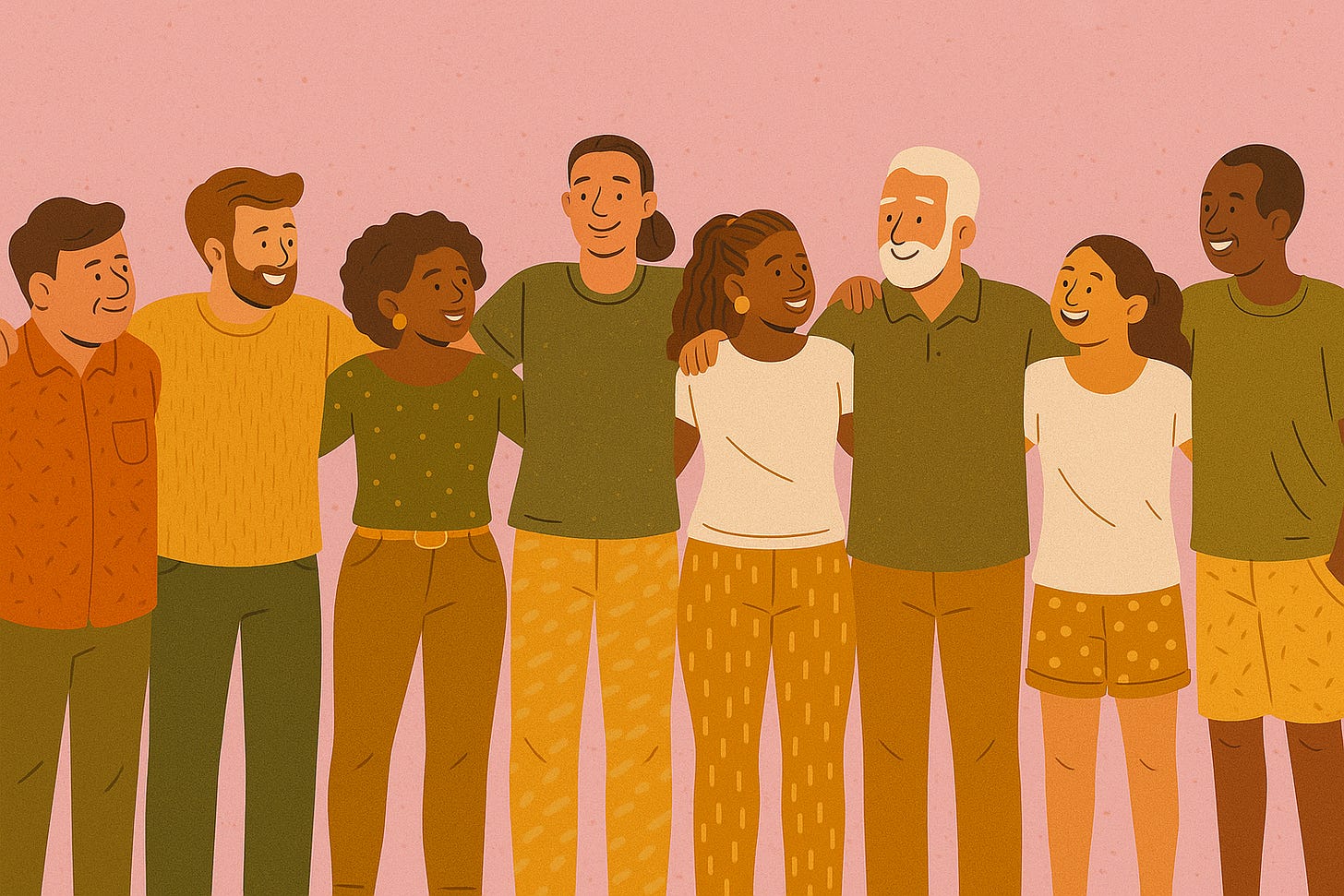More Than One: Rethinking Belonging in Non-Monogamy
Exploring how to feel chosen, secure, and deeply met—without needing to be the only one
We all want to feel like we matter. Not just in a general way—but in that deep, full-bodied, I-see-you-I-choose-you kind of way.
The need to belong is one of our most fundamental human requirements—wired into our nervous systems for safety, connection, and survival.
Modern cultural conditioning tells us that one person should meet all our needs for belonging, significance, intimacy, and safety. But that’s a heavy burden for any one relationship to carry. Non-monogamy challenges this assumption—not to dilute love, but to expand it.
And non-monogamy isn’t new. It’s an ancient, diverse, and culturally-rooted way of relating—from the fluid relationship networks of Amazonian Indigenous communities, where children were sometimes raised with multiple recognized fathers, to the openly plural unions practiced in parts of West Africa, including co-husband arrangements among the Irigwe of Nigeria, to the “walking marriages” of a matrilineal society called Mosuo in China, which The Guardian describes as “an elegant term for what are essentially furtive, nocturnal hook-ups with lovers known as ‘axia’. … For Mosuo women, an axia is often a pleasurable digression from the drudgery of everyday life.”
And honestly—in the chaos and collapse of 2025, who among us isn’t in need of a little pleasurable digression from the drudgery of it all?!
But really, the point is: In many of these earlier societies, belonging didn’t hinge on exclusivity. In the past, it was the village that held us. Belonging came through friends, elders, siblings, chosen kin—not just romantic partners. Relationships were woven into the fabric of extended kinship and community care—where no single person was expected to be our everything.
But in the wake of colonization, Christianity, capitalism, and the rise of the Western nuclear family, those communal structures were eroded or pathologized. In their place, we’ve come to believe that a single partner should be our lover, therapist, co-parent, co-regulator, and home. It’s no wonder so many of us feel stretched, isolated, and unmoored.
And it’s no wonder that stepping away from monogamy—if a single romatic relationship was our primary source of emotional safety—can feel deeply unsettling, even terrifying.
If we haven’t seen other models of community care or collective belonging, if we’ve never been shown what it looks like to co-regulate in a web of support, of course we’re going to reach for the one framework we have been taught: pair-bond or perish.
And yet… the dyadic “you complete me” monogamous model isn’t actually working for significant numbers of people. We’re told that if we just find “the one,” we’ll finally feel whole, safe, and satisfied. But the numbers tell a different story:
40–50% of U.S. marriages end in divorce, according to long-standing estimates from the American Psychological Association.
Among those, 20–40% cite infidelity as a primary cause, suggesting that the promise of exclusivity doesn’t always deliver security.
And beyond legal outcomes, the emotional toll is widespread—more than 1 in 4 U.S. adults reported feeling lonely in 2023, with many pointing to disconnection within their romantic relationships as a key contributor.
Monogamy, as it's commonly practiced, often sets people up to fail—not because people are flawed, but because the structure asks one person to meet every need for intimacy, identity, and belonging, often in isolation from wider support systems.
It’s no wonder so many people feel overburdened in partnership and undernourished in community.
It’s no wonder so many cheat—not necessarily because they don’t love their partners, but because they’re desperate for something more: connection, play, aliveness, reflection, freedom.
We’re left to ask:
What if the model is broken—not the people trying to survive inside it?
What other ways can we feel loved, significant, and secure—without asking one person to meet every need we have?
Keep reading with a 7-day free trial
Subscribe to Navigating Non-Monogamy with Aria Diana to keep reading this post and get 7 days of free access to the full post archives.



